Plex: 19 July 2023
5-Minute University; <nettime>; Active Inference Ontology for Decentralized Science; Machine Love Is Coming to a Screen Near to You; Path Shift People; Some Thoughts on Building New Habits; Blake Gardens; Eat Like a Tico; Amsterdam From Another Side; A Digital Society and Social Transformation
The Biweekly Plex Dispatch is an inter-community newspaper published by Collective Sense Commons on first and third Wednesdays of each month. Price per issue: 1 USD, or your choice of amount (even zero).
In This Issue
- 5-Minute University (Jerry Michalski)
- <nettime> (Peter Kaminski)
- Active Inference Ontology for Decentralized Science (Michael Lennon)
- Machine Love Is Coming to a Screen Near to You (George Pór)
- Path Shift People (Peter Kaminski)
- Some Thoughts on Building New Habits (Ken Homer)
- Blake Gardens (Ken Homer)
- Eat Like a Tico (Todd Hoskins)
- Amsterdam From Another Side (Hank Kune)
- A Digital Society and Social Transformation (Douglass Carmichael)
5-Minute University
by Jerry Michalski and Peter Kaminski
In the July 6th OGM Thursday call, we had a great first set of 5-Minute Universities:
- AI/ML: History and Prospects (Jerry Michalski)
- Essential Elements of Agreements (Stewart Levine)
- Words & Worlds (Gil Friend)
- Gardenworld Politics (Douglass Carmichael)
We enjoyed each of them, and having them together, and we will be adding 5minU to our formats for future OGM calls. Please consider sharing something you care about as a 5-Minute University. Email Jerry to get on the list to present.
You'll find details on how to do 5minU here. Those instructions were written for recording and posting 5minUs; adapt as appropriate for live presentation.
<nettime>
by Peter Kaminski
nettime is a 25-year-old Internet institution, a moderated mailing list sort of about the intersection of human culture and the Internet. There's a short Wikipedia article about nettime, and archives going all the way back.
(A quarter-century is a long time on the Internet, but there are even older things. I'm still on a much smaller social list that's been around since 1989; I joined in '92 or '93.)
There was recently a bit of an existential crisis, and it wasn't clear if nettime's time was up, but I'm glad to report that it's still quite alive and vital, a new team of moderators stepping in for the previous gracious hosts, and a move to a new list service. You can see some of the new signs of life in recent posts:
- I'd say definitely-not-yet dead
- a longform summary of the synchronous meeting held today
- ... a shortwave radio that must be 40 years old still functions. This discovery gave me a lot of the same moral comfort that I derive from nettime.
This isn't really a recommendation to join the list, or even read the archives, and even if you wanted to subscribe, it might be best to wait a few weeks until they transition to the new server. But I wanted to pass along a small bright spot of news and longish-term permanence on the 'net, in a sea of too much churn and change.
Active Inference Ontology for Decentralized Science
by Michael Lennon
A recent paper that might be of interest to the Plex community is the Active Inference Ontology for Decentralized Science.
As many Plex readers may know, Active Inference (Act. Inf.) was derived by neuroscientists to model human cognition mathematically. Computer scientists have found Act.Inf. methods to be very useful in advancing Machine Learning / Artificial Intelligence.
The paper approaches science as a collective process and explores applying Active Inference (and blockchain) to weave decentralized science into a greater epistemic Commons.
The paper is offered in the hopes it might spark insights or novelty in the Plex community for extending self-organizing collective learning and/or growing the knowledge commons beyond science.
Machine Love Is Coming to a Screen Near to You
by George Pór
Excerpted from George's original Medium post, Machine Love Is Coming to a Screen Near to You.
So, recently, when the AI revolution broke out, I welcomed it with the question, how can we unleash its emancipatory potential for freeing all of us from wage slavery and other forms of enslavement? How will AI support the self-organization and coordination between people and their composable communities and networks for realizing such macro-scale goals?
There is an ongoing banter between the companion in evolutionary spirituality and the radical sociologist, two aspects of myself. The companion says a peaceful and well-aligned world requires individuals who are peaceful and well-aligned within themselves. The radical sociologist agrees, but he comes back saying yes; however, such individuals will appear at the requisite scale only in a deliberately developmental society where the highest goal of all institutions and the society at large is the flourishing of each individual.
On good days, those roles I play stop arguing and agree on a “both/and and more” approach. Because today is a good day, I can look at the potential of AI through both lenses, even at their interdependent relationship.
Today, it’s easier because I came across a paper that has blown my mind more open and was also heartwarming, which I can rarely say about a scientific experiment. I am talking about Machine Love, by Joel Lehman, which gave my research a new impetus and became one of the sources of inspiration for my forthcoming book on Prometheus and the Rise of Compassionate AI. Don’t take the title wrong; I’m not saying that AI has human-like compassion, and the same is true for the “loving machines.”
Machine Love reports a proof-of-a-concept experiment that features love not as an emotional experience but as learnable practical skills for supporting others in their growth and development.
... continued at https://technoshaman.medium.com/machine-love-is-coming-to-a-screen-near-to-you-e1fd13fd08b2
Path Shift People
by Peter Kaminski
I'm happy to announce Path Shift People, a new business started by Wendy Elford, Mathew Lowry, and me. We will offer courses and consulting services around AI tools in business. The first cohort of our Smarter, Faster, Better with ChatGPT course is already underway, with the next cohort planned to start in the first week of August.
A month or so after that, we'll be offering Boost your personal productivity with AI. More courses are under development, so subscribe to our free newsletter or join our free community through the Path Shift People website to stay informed.
Some Thoughts on Building New Habits
by Ken Homer
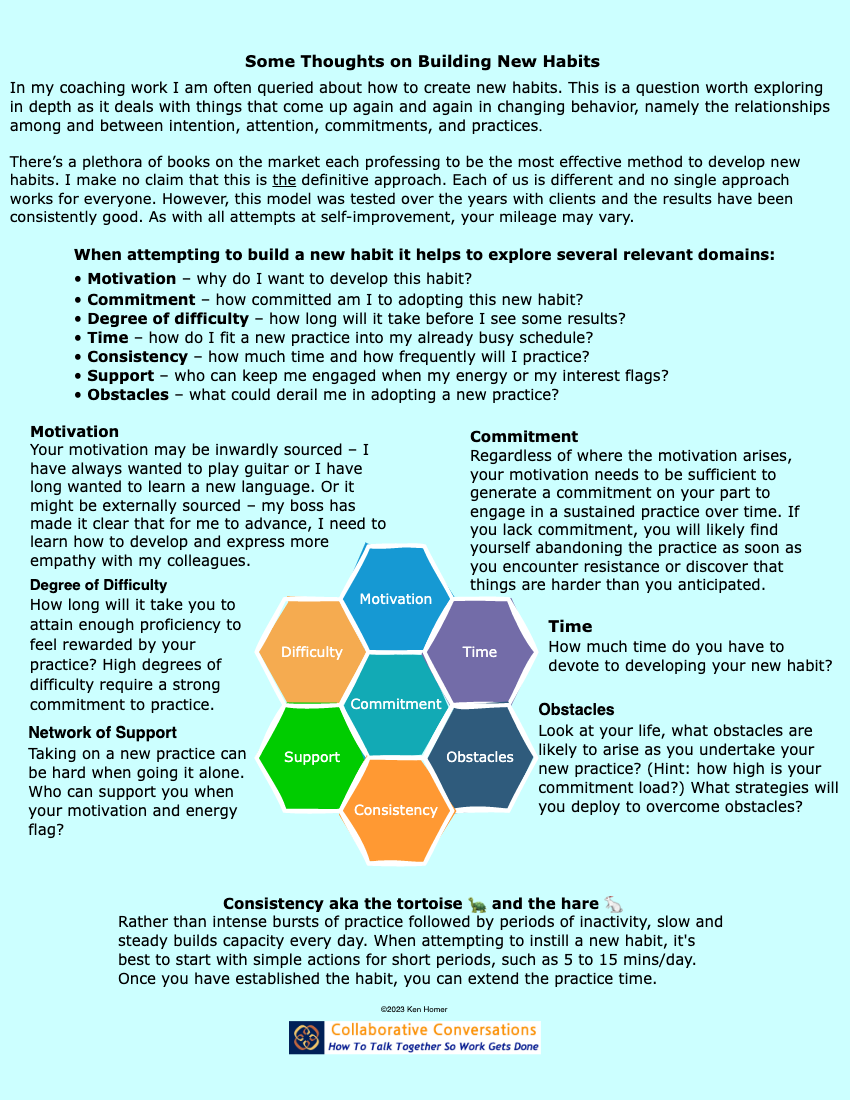
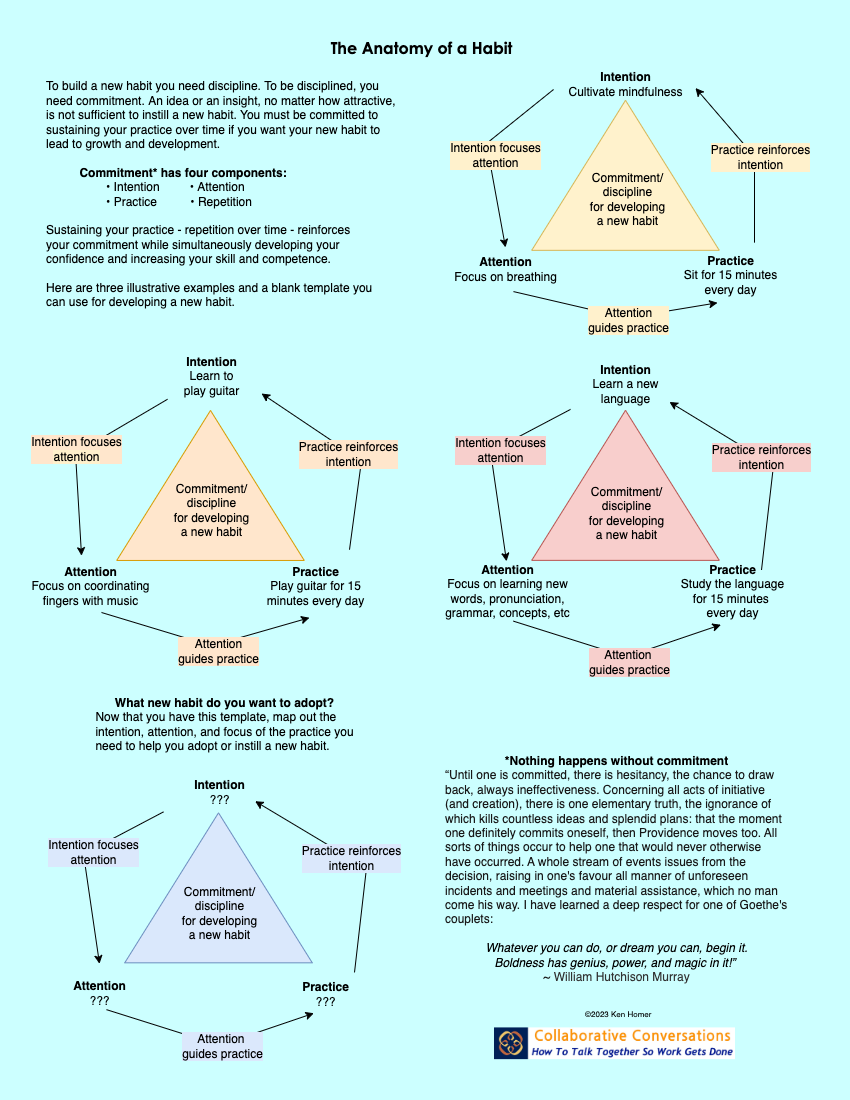
Blake Garden
by Ken Homer
Photos taken on a visit to Blake Garden in Kensington, California, near UC Berkeley.



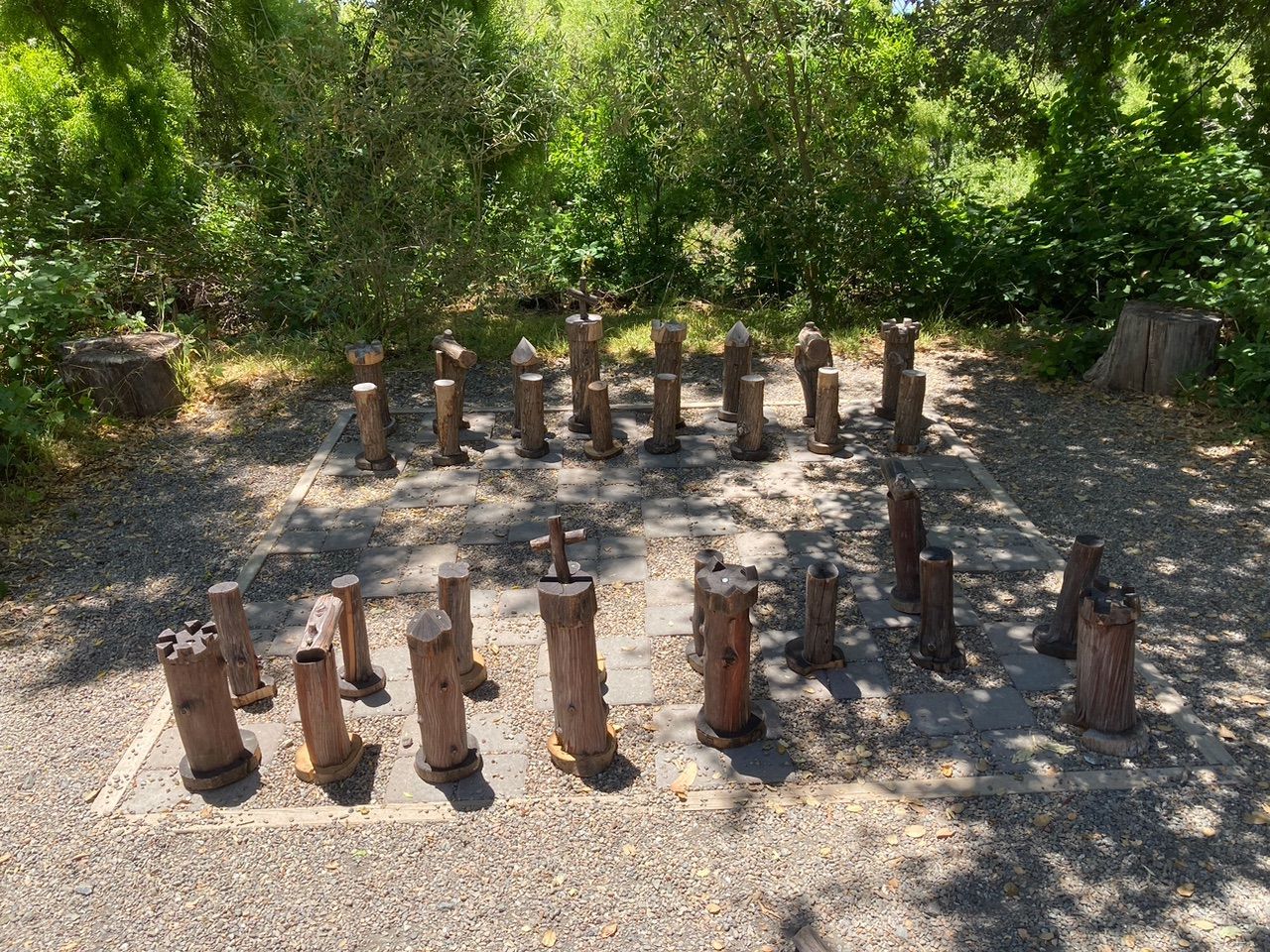
Eat Like a Tico
by Todd Hoskins
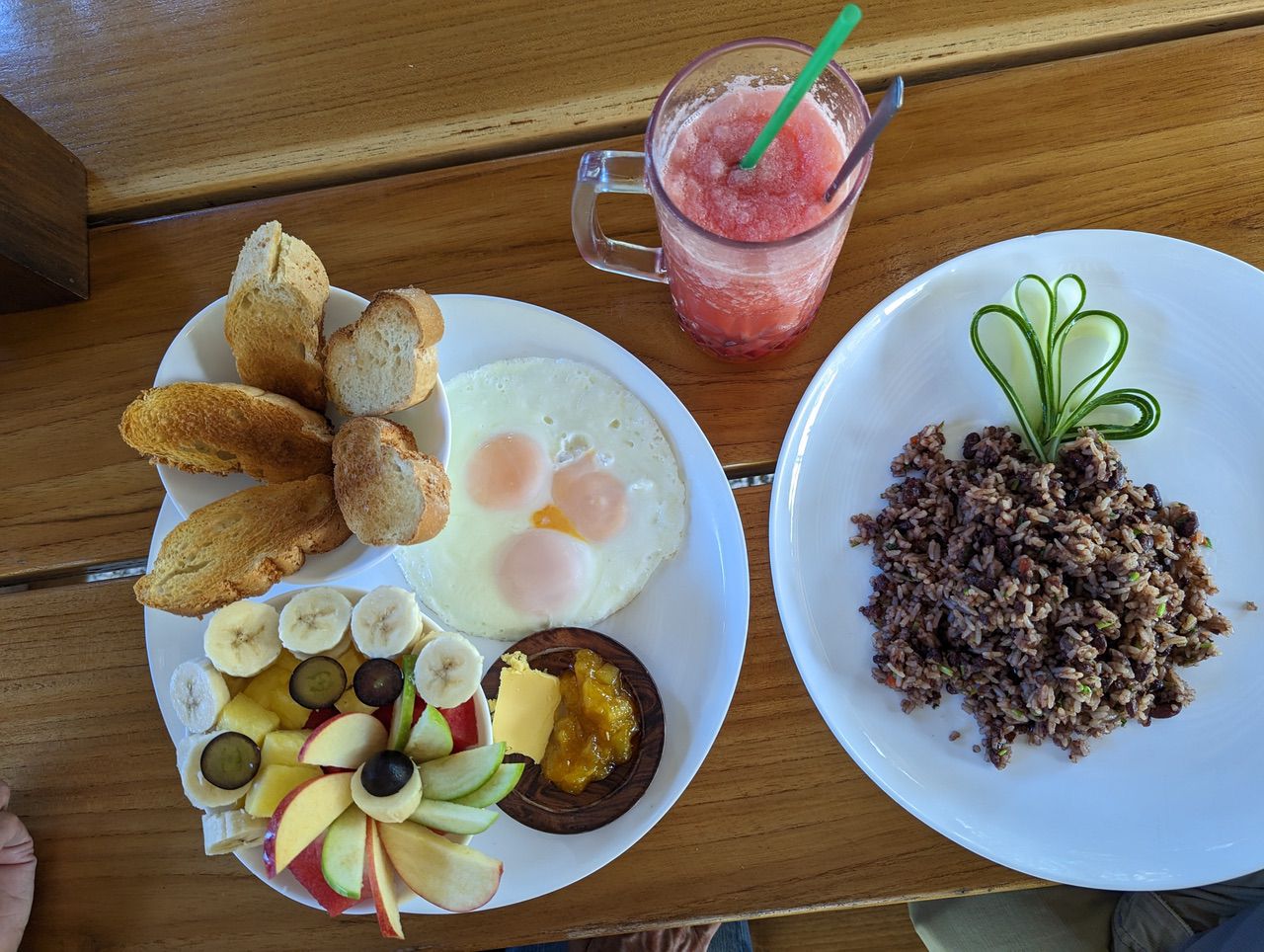
Food is the gateway to a culture's heart. As someone who was an urbanite for over two decades, I was accustomed to choice and global food options within walking distance. Even in our little lakeside hamlet in Michigan, we had Mexican and Asian markets where we could buy fresh tamales and bok choy.
In Costa Rica, the towns that are close to the ocean have an international population. We have neighbors from Peru, Brazil, Mexico, Canada, Denmark, England, Czechia, China, Italy, and Switzerland. But there are not enough nomads, residents, and travelers to warrant more than an Italian, Peruvian, and Brazilian restaurant. There are no markets with international ingredients within 30 minutes.
You pass through five towns between Paraiso, where we live, and Santa Cruz, our closest city about 40 minutes away (where there are two Chinese restaurants). In each of these towns is one, two, or three “sodas” where people gather to eat, drink, sometimes dance, and discuss what is happening in the area.
If you’re close to a tourist area, the soda might have a sign that says, “Comida tipica,” or “typical food.” If you’re in a zone with minimal Gringos you can just assume the soda serves comida tipica. What is typical food?
You have to begin with gallo pinto which is rice and beans stir-fried with some finely chopped peppers, onions, and cilantro. It’s served with fresh cheese, fried plantains, and optionally, eggs and/or meat. You get a little salsa picante (the Tico version) on the side. The name means “spotted rooster” which is supposedly what the beans and rice look like when plated. The flavors are delightfully well balanced when done well, which typically means using beans and rice leftover from last night.
Next is ceviche, which you can get in nearly any soda, but also from houses along the side of the road. All it takes is a fresh catch (shrimp, mahi mahi, and other white fish are common) and the right mix of chilis, citrus, coriander, onions, and garlic. I eat it spooned onto patacones, or fried green plantains, with some guacamole.
Third, you have casados, which can be translated as “married.” Some people think that’s due to the origins of wives sending their husbands a full lunch wrapped in a banana leaf. Others believe that it’s because of the flavor matches. I prefer the latter interpretation. The casado includes–you guessed it–beans and rice, plus some vegetables, salad, and some protein–chicken, beef, pork, or fish. It’s a staple of sodas.
It took me some time to appreciate these traditional dishes. When my partner was gone for a longer trip earlier this year, I set out to make a large batch of beans and rice that could last me a week. I solicited opinions on cooking beans the “Tico way” and received many, many ideas. One clear conclusion is that you don’t do it quickly.
By the sixth night, I didn’t think I could eat beans and rice again. I called a friend and we went out for a hamburguesa together (another favorite Tico food by the way). I decided I can’t eat the same food every day.
We knew that in moving here our gastronomic delights would have to shift. We have spent less time in the kitchen, and less money going out for meals since moving here. That wasn’t a decision. Life is more simple here, more elemental. Why would you want to fuss in the kitchen so much?
We are committed to good ingredients, nothing fancy, and lots of fresh fruit and ice cream. There's a certain magic that unfolds when you allow your taste buds to mingle with the local produce, spices, and traditions. It's like unlocking a secret code that reveals the heart and soul of a place. Costa Rican flavors are not usually loud or spicy. They are subtle and in harmony, much like my experience of Tico people.
If you travel to a resort town, you can have global options and cloth napkins. But that’s not what we’ve chosen. Eating like a Tico is not a sacrifice. It’s a different relationship with food.
Amsterdam From Another Side
by Hank Kune
Outside its historic center, Amsterdam is like many other modern European capitals – expanding its horizons in all directions.
There are good reasons for visitors to avoid the historic center, and explore the streets of this other side of Amsterdam, a city which also has its more recent buildings, with artworks on the streets, and some surprising places to sit and reflect: what was it I came here to see?
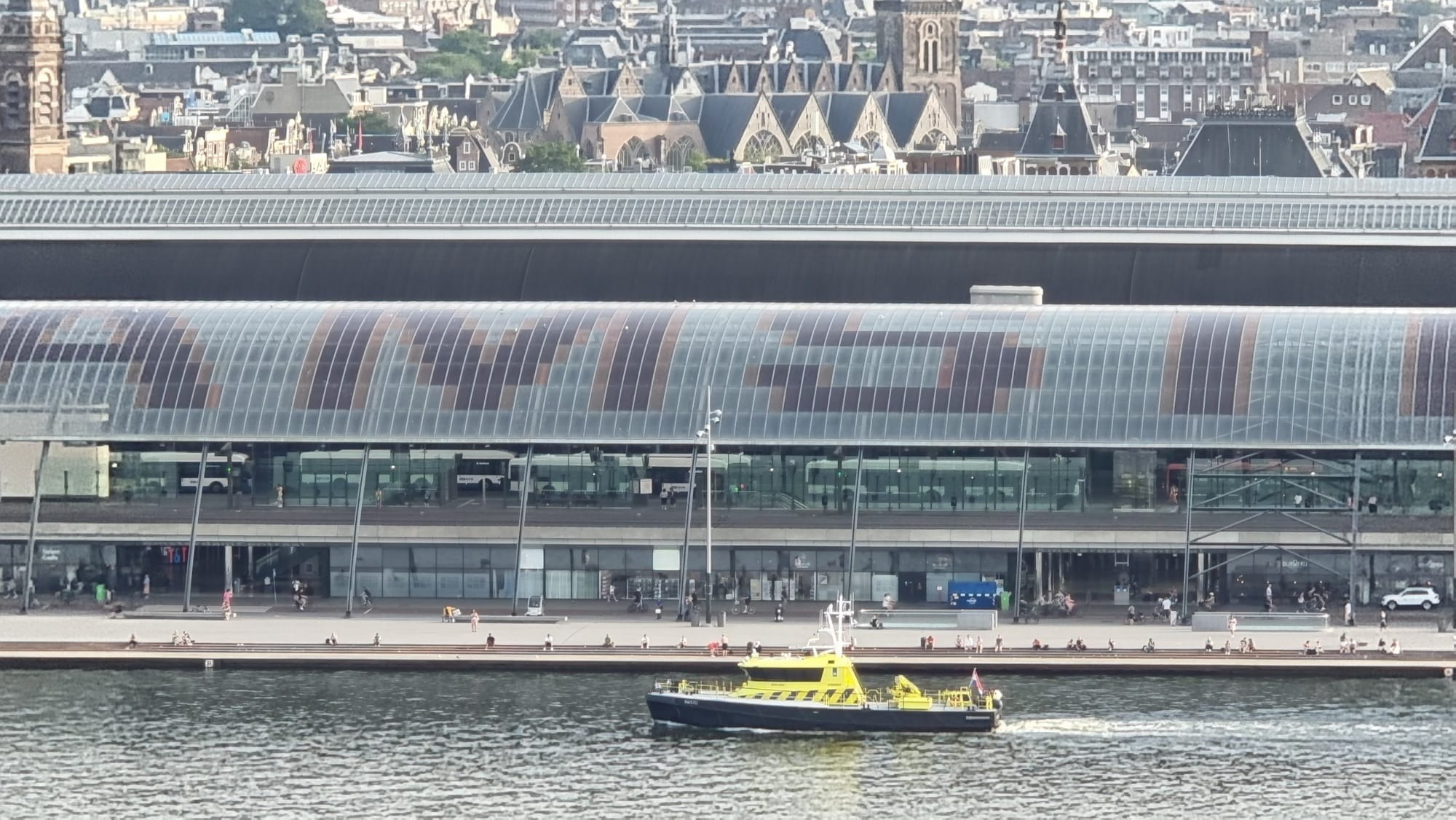
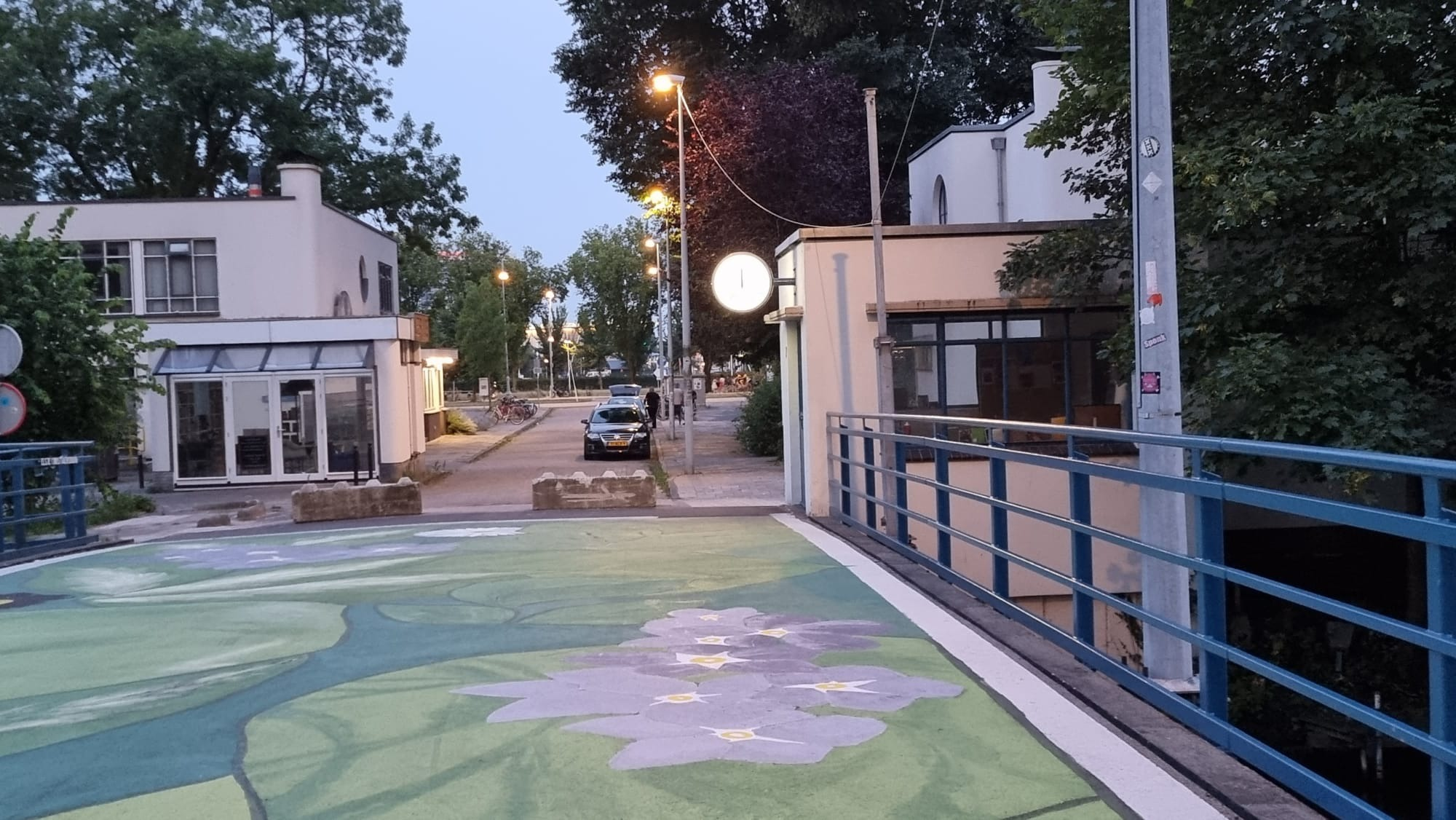
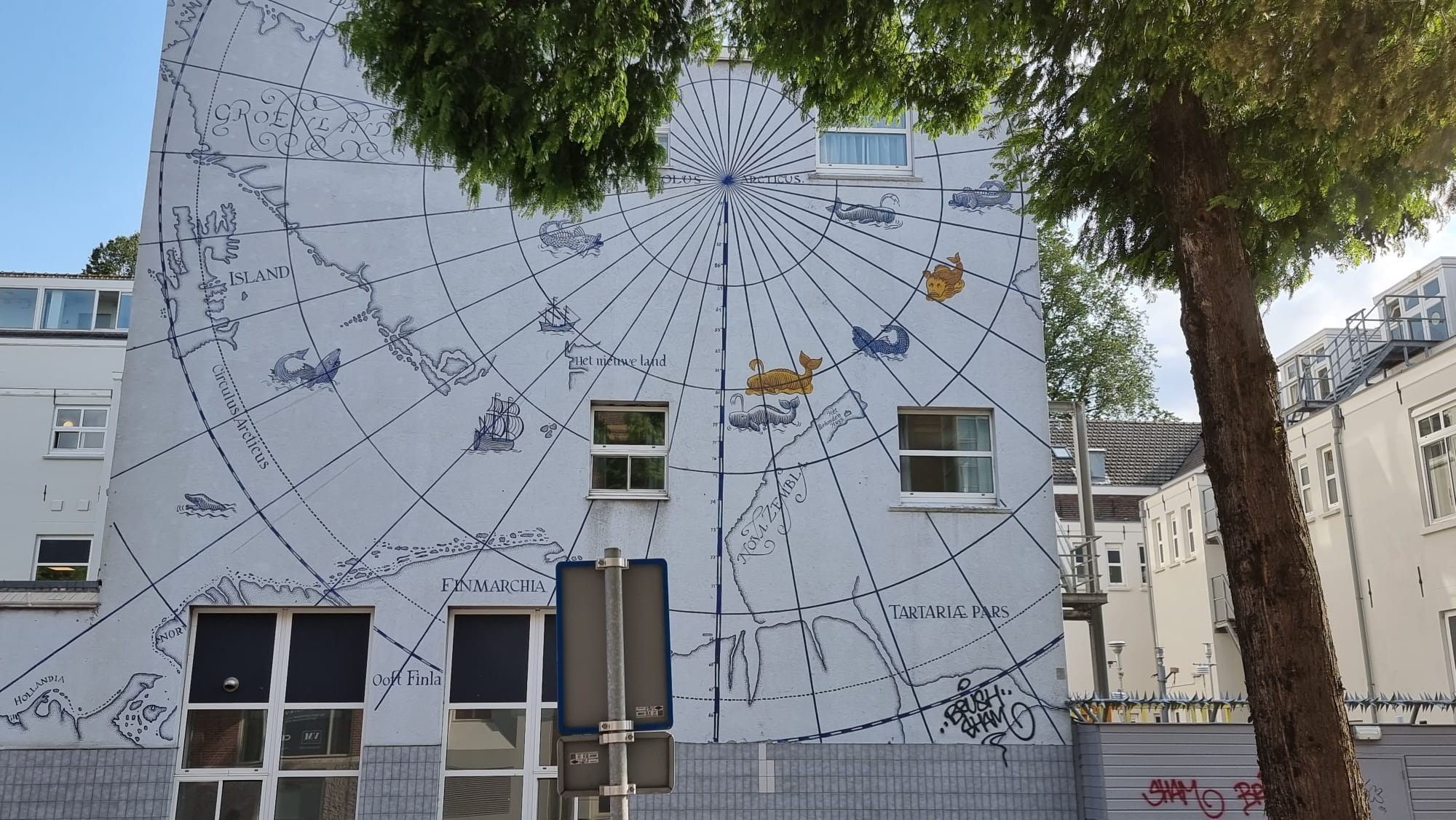
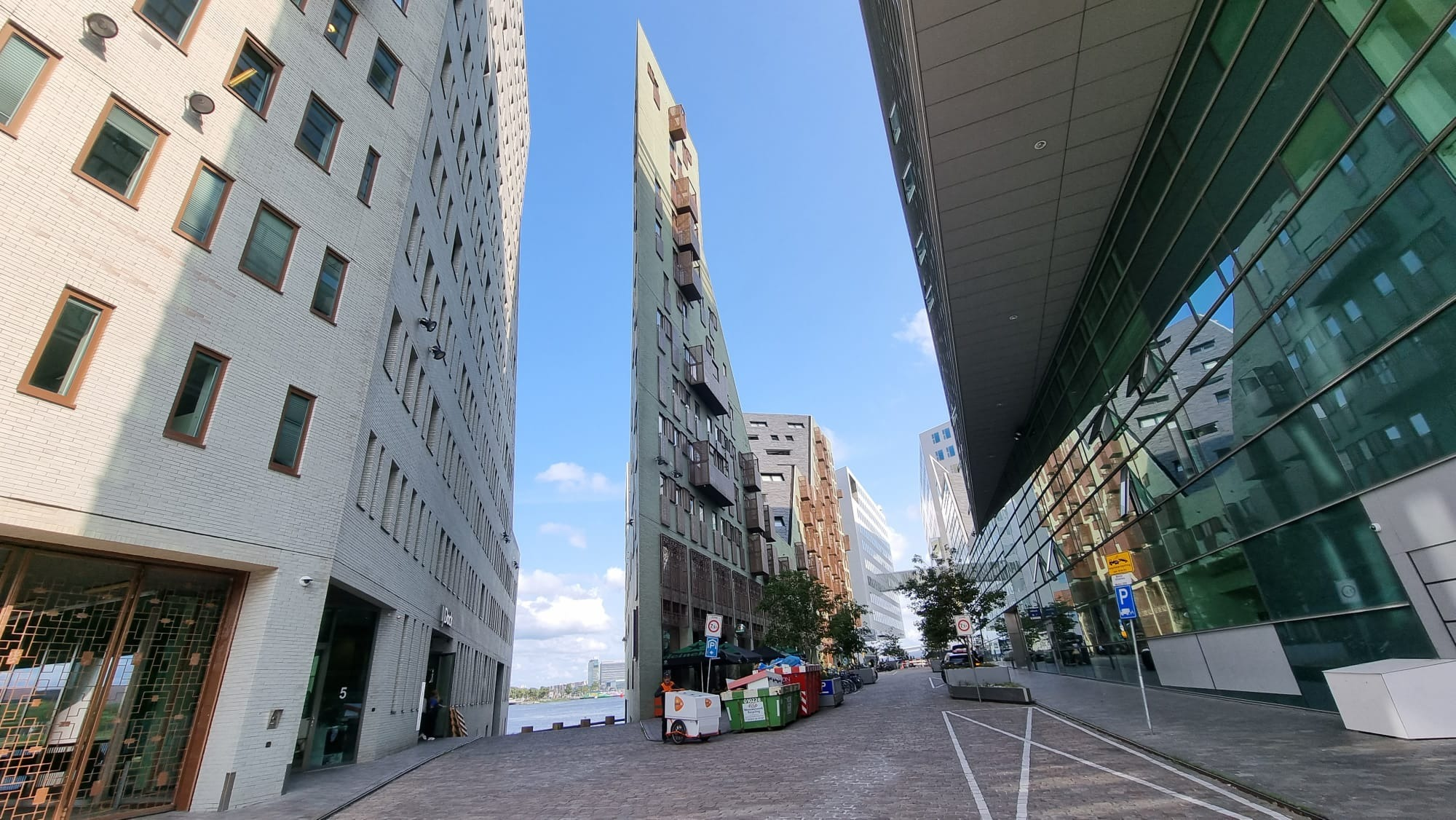
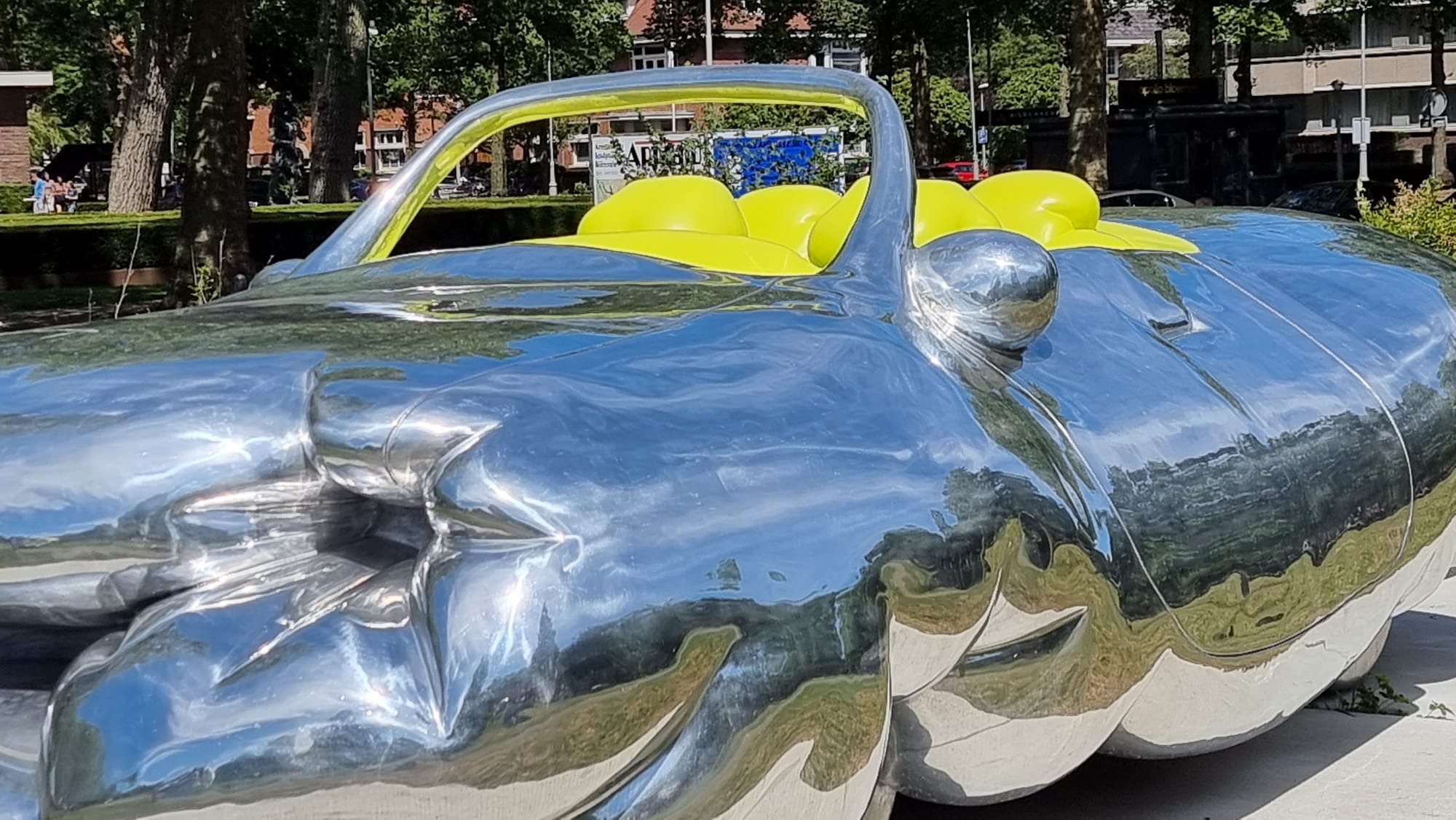
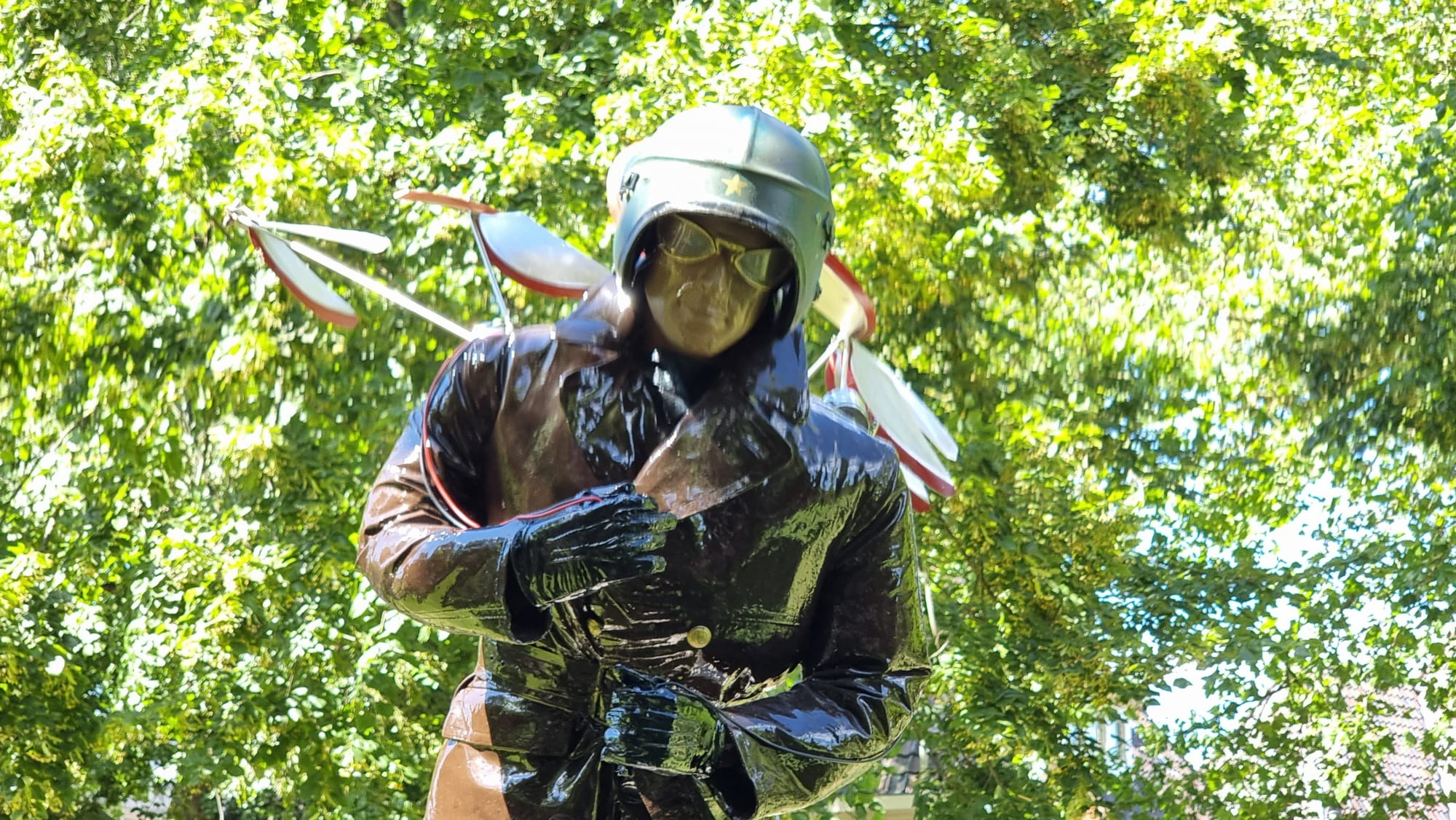
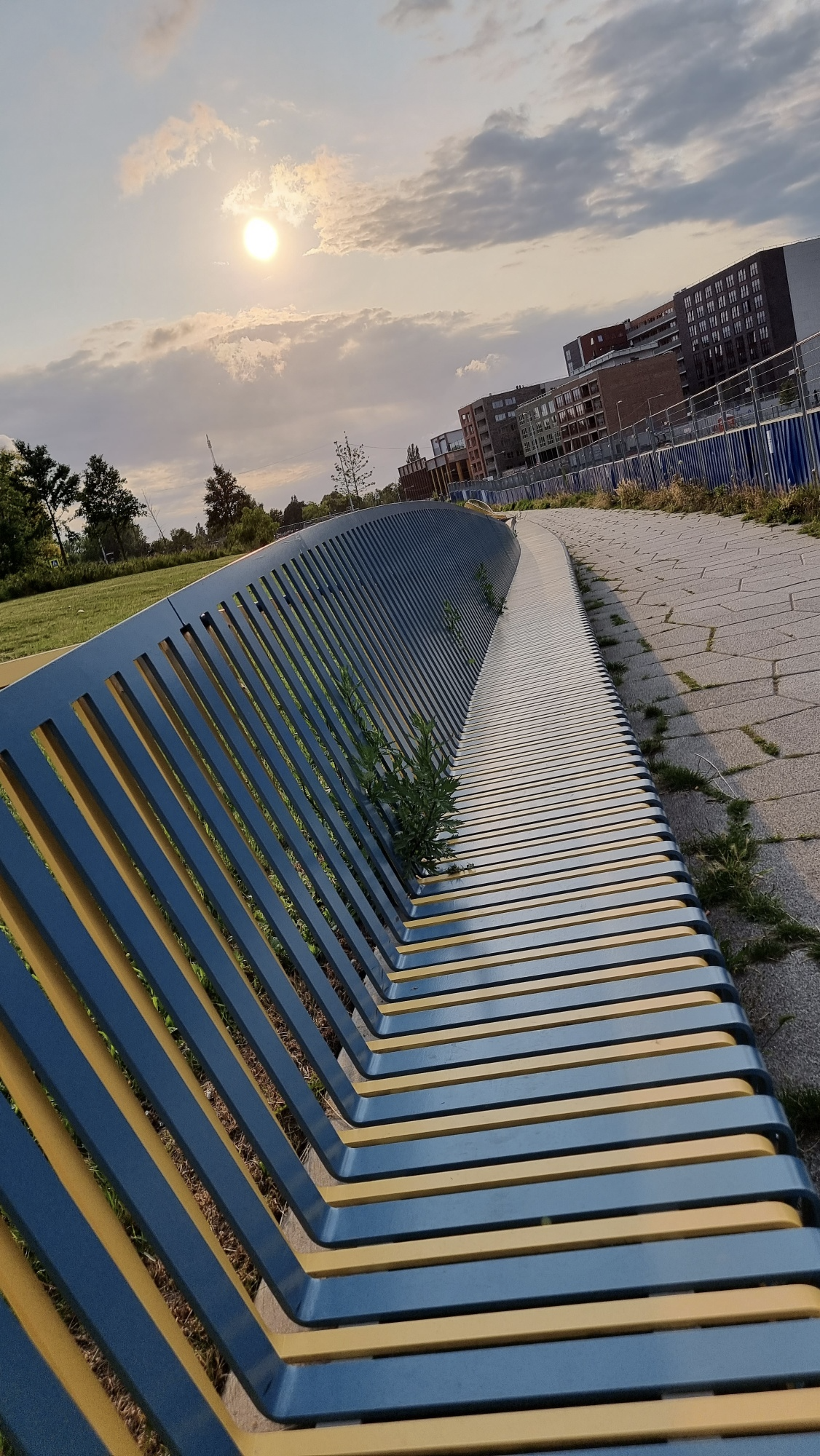
A Digital Society and Social Transformation
by Douglass Carmichael
The increasing discourse surrounding social and economic transformation invariably poses the question - transformation towards what? Perhaps, a digital world might be more conducive to social experimentation than the object-focused, materialistic world we are transitioning away from.
Influential narratives, often referred to as scenarios, provide clues for how to proceed with crucial issues concerning organizations or societies, or, as issues emerge, provide strategies.
However, constructing dynamic narratives about our past and likely future often faces obstacles. The difficulty lies mainly in that professionals, especially in the tech industry, are limited by the notion that history simply entails the transition from agriculture and rural life, to factories and cities.
This perception of the movement from rural to industrial society offers a limited picture of humanity's history on earth. People avoid reading about climate, war, inequality, soil quality, and loss of species, not to mention the underexposure to news about their own and comparable life circumstances, such as polluted communities or streets that look like prisons.
Understanding the causes of these negative outcomes is impossible if their effects aren't clearly experienced.
Certainly, there are more complex narratives, albeit understood by a few. These narratives detail our transition from hunter-gatherers, to herding, to settlement formation, craft-work, factories, cities, banks, and finally to a larger tech focus.
However, these narratives often exclude the story of capitalism, inequality, religions, elites, and ideas outside one's own specialized silo.
Graeber and Wengrow's 'The Dawn of Everything' effectively unravels these largely ignored aspects of history, thereby considering realistic alternatives.
An intriguing idea emerged from a small working group of economists discussing narratives: What if the three phases - agricultural, industrial, and digital - are a good map of our most relevant history?
This perspective could shift the global conversations about the goals and processes of transitioning out of capitalism towards more humane values. While this has traditionally remained a fairly abstract concept and seemingly unreachable, the digital revolution is already here, making a profound impact. It is much easier to transition to something that is already present.
In digital culture, the flow of electrons replaces the static placement of things. Aliveness replaces deadness. Metaphorically, electrons are more democratic than objects - they are equal agents. This perspective supports the intuitive belief that life is alive, dematerializing matter, and replacing a world of objects with flows, fields, and networks.
So, how do we transition from a universe perceived as matter and objects to a universe experienced as flows, fields, and networks?
We pursue these ideas with the aim to rethink the kind of society that might emerge based on the long-held goal of a more human society for humanity. The digital universe is already here, particularly resonating with young minds. These days, the mind is intuited more as a process than a thing. It's critical that we leverage this shift and rethink economic and social transformation with compelling ideas active in the world, more alive with flows than dead with objects.
The progression from agriculture to industrialization to digital forms an intuitive path that presents numerous opportunities, and with hard work and creativity, the potential to create a better world.
Thank you for reading! The next edition will be published on 2 August 2023. Email Pete with suggested submissions.
Grateful appreciation and many thanks to Charles Blass, Douglass Carmichael, Ken Homer, Todd Hoskins, Hank Kune, Michael Lennon, Jerry Michalski, and George Pór for their kind contributions to this issue.